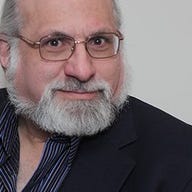Facebook goes for the gold. Datacenter, that is.

In spite of the overblown furor that Greenpeace used to fling mud on Facebook's choice of power providers for their Pinveville, Oregon datacenter, Facebook has been able to achieve U.S. Green Building Council's LEED Gold certification for their datacenter facility. With the state-of -the art energy efficiencies that Facebook was able to implement they are claiming to have achieved the equivalent workload of their existing leased facilities while using 38% less energy to accomplish the same amount of work.
Facebook was able to achieve their energy efficiency gains through a number of factors, not the least of which is the climate in Pineville, which is sufficiently cool, year round, to obviate the need for traditional chillers or cooling towers; the facility uses 100% outside air and evaporative cooling. Along with that the custom Facebook servers use 38% less electricity and are designed to operate at higher temperatures than traditional server hardware, all of which helps with their datacenter energy efficiency. But LEED certification requires more than just energy efficiency with IT loads; it encompasses the entire facility.
To these ends Facebook powers the office area of the facility with a solar energy installation which can generate over 200,000 KW/h over the course of the year, heats the facility using waste heat generated by IT loads, and recycles 100% of the rainwater that hits the facility, reducing the requirement for the more than quarter million gallons of water that would otherwise need to go through the local municipality's water treatment system.
This is the first phase of the Facebook Pineville project and they have demonstrated their dedication to "greenness" throughout the design and construction of the project. Over 90% of the wood used in the construction was from certified sustainability-managed forests, more than 80% of the industrial waste from the build was recycled, with 27% of the materials actually used in construction coming from recycled sources, and, in addition, 30 percent of the construction materials were locally sourced.
If nothing else, this shows how difficult it is to satisfy the demands of activists for green causes. Facebook has made an excellent effort in mitigating the environmental effects of their datacenter, and, as their open source efforts have shown, are continuing to put significant resources to improving the efficiencies of their datacenters, and effort which not only makes them more cost-effective, but also makes them more environmentally friendly while still being able to accomplish their business processes.